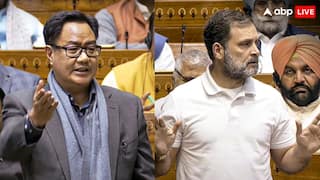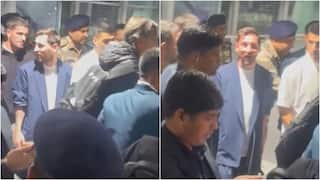'Free Speech Can't Be Exercised At Cost Of Communal Harmony': JNU Student Sharjeel Imam Denied Bail
The cursory and plain reading of the speech showed that it was clearly on communal lines, the judge in his order said.

New Delhi: Denying bail to Jawaharlal Lal University (JNU) student Sharjeel Imam in connection with a sedition case lodged against him for allegedly delivering an inflammatory speech and inciting violence during the Citizenship Amendment Act (CAA)- National Register of Citizens (NRC) protests earlier in 2019, a Delhi court on Friday said free speech cannot be exercised at the cost of communal peace and harmony.
Additional Sessions Judge Anuj Agrawal, who rejected the JNU student’s bail plea, however, noted the evidence in support of the allegations that the rioters got instigated by his speech and thereafter indulged in the acts of rioting, mischief, attacking the police party, was scanty and sketchy, reported PTI.
READ: ISRO Spy Case: Kerala HC Extends Ex-DGP Siby Mathews's Anticipatory Bail
The cursory and plain reading of the speech showed that it was clearly on communal lines, the judge in his order said.
The judge said the tone and tenor of the incendiary speech tend to have a debilitating effect upon public tranquility, peace and harmony of the society.
“It is no gainsaying that fundamental right of freedom of speech and expression' cannot be exercised at the cost of communal peace and harmony of the society," the judge added.
According to police, the JNU student had earlier on December 13, 2019, allegedly delivered a provocative speech, which resulted in riots two days later when a mob consisting of over 3,000 people attacked the police personnel and torched several vehicles in south Delhi’s Jamia Nagar area.
Imam, claimed the police, instigated a particular religious community against the Central government by creating unfounded fears in their minds regarding the CAA and NRC.
Highlighting a portion of the JNU student’s alleged inflammatory speech in the order copy while rejecting his bail, the court maintaining the evidence in support of the allegations that the rioters got instigated by Imam’s speech was scanty and sketchy.
The court said neither any eye witness has been cited by prosecution nor there is any other evidence on record to suggest that co-accused got instigated and committed the alleged act of rioting upon hearing Imam’s speech.
Stating there is no evidence corroborating the prosecution’s version that alleged rioters were a part of the audience addressed by Imam on December 13, 2019, the court said the essential link between the speech dated and the subsequent acts is conspicuously missing.
The court further said the theory as propounded by investigating agency left gaping holes, which leaves an incomplete picture unless the gaps are filled by resorting to surmises and conjectures or by essentially relying upon the disclosure statement of Iman and thr co-accused.
ALSO READ: SC Sends Notice To Ex Twitter India Head Over UP Police Plea On Ghaziabad Assault Video
Quoting Swami Vivekanand while delivering the verdict, the judge said: “We are what our thoughts have made us; so take care about what you think; Words are secondary; Thoughts live; they travel far.”
The JNU student is, in addition to this case, also accused of being the “mastermind” of the February 2020 riots and has been booked under the stringent Unlawful Activities (Prevention) Act (UAPA).






































